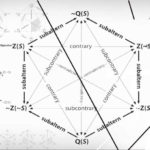We run our website the way we wished the whole internet worked: we provide high quality original content with no ads. We are funded solely by your direct support. Please consider supporting this project.
Dealing With Objections to Open Theism, Part II
There are four major objections to Open Theism. In this post, we are dealing with the third and fourth. (See yesterday’s post to read about the first two.)
Objection #3: God cannot foreknow only some of the future.
It is often argued that for God to be certain of anything about the future, he must be certain of everything about the future. This is an unfounded assumption. Sociologists, biologists, advertisers, and insurance agents accurately predict group behavior all the time without predicting what specific individuals will do.
Moreover, quantum physics, chaos theory, complexity theory, non-equilibrium thermodynamics, and other branches of science are now revealing that all of reality is structured as an interplay between determinism and spontaneity. Our own experience reveals the same thing. With every decision we make we reflect a deep conviction that some of the future is settled while some of it is unsettled, left up for us to decide.
In this light, we should have little trouble accepting that the sovereign God is able to foreordain and foreknow that Jesus would be crucified, for example, without having to foreordain or foreknow exactly who would carry this out (Acts 2:23; 4:27). Nor should we find it hard to accept that God can predestine and foreknow that he would have a beloved church without predestining or foreknowing which individuals will and will not choose to belong to his church (Rom 8:29; Eph 1:4-5).
Objection #4: The supposed “openness passages” in the Bible are merely examples of anthropomorphic language.
Many have argued that the passages to which Open Theists appeal for support can be explained as anthropomorphisms (i.e., depicting God in human terms). There is, however, nothing in any of these passages that suggest they are merely anthropomorphic. None of the texts suggest it is as though God changes his mind, regrets previous decisions, is surprised or disappointed, and so on. Nor is there anything in the rest of Scripture that requires or even warrants that we interpret all passages that depict a partly open future as anthropomorphic. Scripture describes God’s character as unchanging (Mal 3:6), but it never teaches that God is unable to change in any respect (e.g., his intentions, experiences). It teaches that the future is exhaustively settled to the extent that God wills it, but it never teaches that the future is exhaustively settled. And it teaches that God sometimes chooses not to change his mind (Num 23:19; 1 Sam 15:29; Ezek. 24:14) but never that he cannot change his mind.
Further, the passages cited in support of the open view do not readily lend themselves to an anthropomorphic interpretation. What does the concept of God “changing” his mind communicate if indeed it is merely an anthropomorphism? If God in fact never changes his mind, saying he does change his mind doesn’t communicate anything truthful: it is simply inaccurate.
Finally, interpreting openness passages as anthropomorphisms sometimes results in undermining the integrity of Scriptures. For example, Scripture says that because of Moses’ intercession, “the Lord changed his mind about the disaster that he planned to bring on his people” (Ex 32:14). If the Lord didn’t really change his mind, then neither did he really plan to bring disaster on his people. If this is merely anthropomorphic, then Scripture misleads us when it explicitly tells us what the Lord was planning before he changed his mind.
—Adapted from Across the Spectrum, pages 67-68.
Category: General
Tags: Across The Spectrum, Chaos Theory, Determinism, Objections to Open Theism, Open Theism, Probability
Topics: Open Theism
Related Reading

Neo-Molinism and the Infinite Intelligence of God
Classical Molinism holds that, since God is omniscient and knows all truths, he knows not only what every agent will do in the future, but also what every agent would have done in every other “possible world.” In this essay I argue that classical Molinism overlooked a whole category of truths that an omniscient God…

How do you respond to the book of Revelation?
“The revelation of Jesus Christ, which God gave him to show his servants what must soon take place…” (1:1). Because many modern evangelical readers consider almost everything in the book of Revelation to be a sort of “snap shot” about what shall occur at the end of history, it will prove more beneficial to deal…

Podcast: How Could Jesus Know Peter Would Deny Him Exactly 3 Times?
Was the rooster in on it? Greg discusses the specificity of Jesus’ prophecy about Peter. http://traffic.libsyn.com/askgregboyd/Episode_0076.mp3

What is the significance of 1 Chronicles 21:15?
“And God sent an angel to Jerusalem to destroy it; but when he was about to destroy it, the Lord took note and relented concerning the calamity; he said to the destroying angel, ‘Enough! Stay your hand.’” This powerful passage tells us why God sent the angel and why he changed his mind. If God…

The Logical Hexagon Made Simple
by: Greg Boyd The Hexagaon in a Nutshell For those of you who don’t have the twenty to thirty minutes it will probably take to read this essay but who nevertheless would like to have some idea of what the Logical Hexagon is all about, here is my two sentence elevator speech: The Logical Hexagon…

Free Will: How free will presupposes a great deal of determinism
This particular video was recorded last week when the forecast called for a high of -4F. Greg makes light of the freezing conditions before he settles into the topic of how a mostly determined world is actually the needed context for free will to operate. Stay warm out there!

